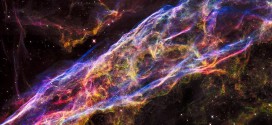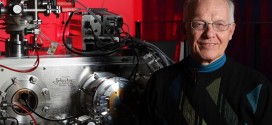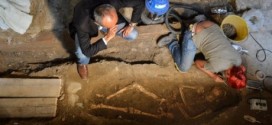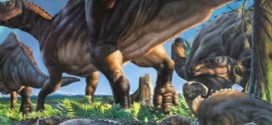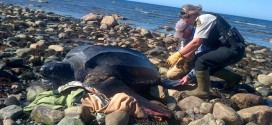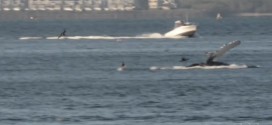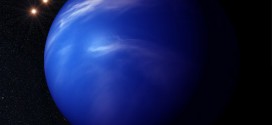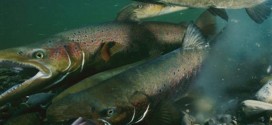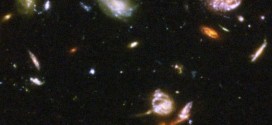The Hubble telescope took a photo of the Veil Nebula, a remnant of the Veil supernova that exploded 8,000 years ago. “The Veil Nebula, left behind by the explosion of a massive star thousands of years ago, is one of the largest and most spectacular supernova remnants in the sky,” NASA says about the colorful and captivating cloud of gas. …
Read More »Science
Paul Corkum: University of Ottawa prof named as possible Nobel Prize winner
A National Research Council of Canada physicist whose contributions have opened the possibility of studying how molecules change and interact in real time has made the annual list of scientists deemed most likely to win a Nobel Prize. Paul Corkum, who was born in Saint John, N.B. and is currently the Canada Research Chair in Attosecond Photonics, joins Ferenc Krausz …
Read More »Mona Lisa’s Bones Found? Burial breakthrough may solve identity mystery behind “Da Vinci masterpiece”
Bone fragments dating back to the 16th century are “very likely” to be that of the actual Mona Lisa, say Italian researchers. Lisa Gherardini, the wife of silk merchant Francesco del Giocondo, has long been linked to the intriguing portrait, although art historians have never been able to agree conclusively on the model’s identity.
Read More »Study, Why Babies Smile: Robot Shows How Babies Are Actively Plotting to Make You Smile (Video)
Study : There’s more to learn about why babies smile. A team of researchers out of the University of California-San Diego have discovered that there is a hidden agenda behind a baby’s smile…they want to make their mothers smile, too. Babies are basically like comedians, using sophisticated timing to maximize the response of their audience, which is in this case, …
Read More »Your Tooth Enamel Might Have Started As Fish Scales, New Study
A new report in Nature says that enamel, the substance that coats human teeth, originally began on the scales of ancient fish. The scientific findings suggest that long ago the material served as a protective defense for the scales of early fish – the ancestors of terrestrial vertebrates, including our own species. “We hypothesize that enamel originated on the scales, …
Read More »New species of dinosaur found in Alaska, scientists say (Video)
A new species of dinosaur that apparently thrived in the cold has been discovered in a remote corner of Alaska. The creature, Ugrunaaluk kuukpikensis, was a species of hadrosaur that grew up to 30 feet long, lived in herds in the North Slope of Alaska, could thrive in darkness for several months at a time and probably even encountered snow …
Read More »Rare Leatherback turtle rescued from shoreline
It’s an unusual spectacle to have a leatherback sea turtle grounded on a Newfoundland shoreline, but if there’s a guy who knows how to handle it it is Wayne Ledwell. Ledwell, with Whale Release and Strandings, says the turtle became beached, but Fisheries Officers, a veterinarian, and local residents were able to work together to move the animal into deep …
Read More »Humpback whales spotted in Columbia River (Video)
Humpback whales were spotted in the lower Columbia River, by the bridge between Astoria and Pacific County Washington. Oregon Public Broadcasting’s Vince Patton reports that the whales were spotted just downstream of the bridge to Washington. So, what’s bringing the whales this far upriver?
Read More »Scientists Capture Video Of Exoplanet 63 Light Years Away (Watch)
University of Toronto released this video earlier this month. It’s made from a series of images captured between November 2013 and April 2015, and it shows an exoplanet, a planet orbiting a distant star, moving through 18 months of its 22-year orbit around its star. Discovered in 2008, β Pic b is a gas giant 10 to 12 times the …
Read More »Ancient Alaskans were fishing for salmon 11500 years ago, study finds
New evidence has emerged in Alaska that early primitive communities fished for salmon in what is now North America. Alaskan scientists have found that primitive cavemen fished for salmon during the Ice Age in North America. The Paleolithic Indians were basically hunter-gatherers. The men hunted for wild game and fish while the women collected berries and other roots and nuts.
Read More »UBC researchers offer new method for mapping the cosmos in 3-D
There may be a new way to map the cosmos in 3D. UBC researchers have proposed a new way to calculate the distances of the cosmos using mysterious bursts of energy. In a study featured in the journal Physical Review Letters, UBC researchers propose a new way to calculate cosmological distances using the bursts of energy also known as fast …
Read More » Canada Journal – News of the World Articles and videos to bring you the biggest Canadian news stories from across the country every day
Canada Journal – News of the World Articles and videos to bring you the biggest Canadian news stories from across the country every day
